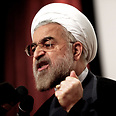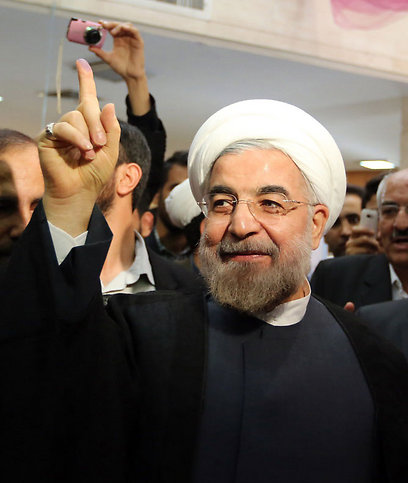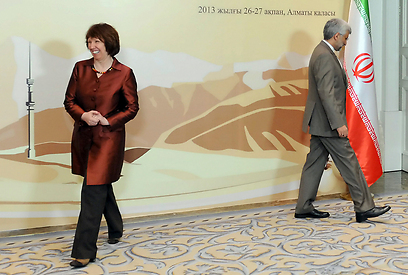
Key issues facing Iran's Rohani: Nukes, economy, US ties
Millions of Iranians celebrated election of moderate cleric, but the president-elect has to deal with a host of problems left by his predecessor Ahmadinejad
The following are the main domestic and international issues facing Iran's incoming president, Hassan Rohani:
Nuclear question: Four rounds of revived talks between Iran and world powers since last year have produced no important headway in Tehran's impasse with the West. The US and allies worry Iran's uranium enrichment could lead to atomic weapons, which could shift the balance of power in the region and give allies such as Lebanon's Hezbollah access to nuclear material.
Related stories:
- Meet Hassan Rohani – Iran's new president
- PM on Iran vote: We're not deluding ourselves
- Analysis: Beware of Rohani's trap
Iran denies it seeks nuclear arms, often citing a religious edict by Supreme Leader Ayatollah Ali Khamenei rejecting such weapons and saying it only seeks nuclear reactors for energy and medical applications. But it refuses to consider giving up any part of the "nuclear cycle," which includes processing and enriching uranium. Israel has said it keeps options open to attack Iran's nuclear sites, but Washington and other Western allies appear committed for now to a combination of diplomacy and economic sanctions to pressure Tehran.
Sanctions: International sanctions led by the US and European Union have sharply increased in recent years, targeting Iran's vital oil exports and limiting its access to global financial networks for trade payments. Oil sales - Iran's main foreign currency source - have been cut by more than half, although shipments still go to major Asian markets such as China and India under US waivers. On July 1, the US could put in motion tighter sanctions seeking to limit gold sales to Iran, which have become a critical financial lifeline.
Much of the gold trade has flowed through US allies Turkey and the United Arab Emirates. Iranian leaders claim they can ride out sanctions through a "resistance economy" that encourages domestic manufacturing and sale of refined petroleum products, which are not covered by sanctions.

No time to celebrate. Rohani (Photo: AFP)
Economy: Iran's economy has been locked in a downward spiral from a mix of sanctions and domestic fiscal mismanagement, blamed on outgoing President Mahmoud Ahmadinejad's policies of subsidies and handouts. The national currency, the rial, has plummeted in value from about 10,000 to the US dollar two years ago to just under 35,000. This has driven up inflation, with prices for some goods tripling. Unemployment is officially at 13%, but most economists believe it could be more than twice that figure.

EU's Ashton and Iran negotiator Jalili during nuke talks (Photo: AP)
Opposition: Years of widespread crackdowns have left the opposition movement shattered and without a guiding hand. Authorities have placed under house arrest the leaders of the protest movement after Ahmadinejad's disputed 2009 re-election. No serious attempts have been made to mobilize street demonstrations since early 2010. In the intervening years, Iran's Revolutionary Guard has grown in power and expanded its networks, including paramilitary groups known as the Basij corps that are present in nearly every town or neighborhood around the country.
US relations: Despite hopes for a breakthrough after President Barack Obama's election in 2008, no significant progress has been made to end the more than three-decade diplomatic freeze. Iranian and US envoys have had contact during nuclear talks, and the two countries found a common cause earlier this year to keep wrestling on the 2020 Olympic program after the International Olympic Committee dropped the sport from its core program. Many of the Iranian presidential candidates, Rohani included, had suggested the possibility of a less antagonistic relationship with Washington, but any such decision rests with the supreme leader.
Regional role: The future of Syrian President Bashar Assad is a pivotal issue for Iran. Without Assad, Iran stands to lose its main Arab ally in the region. It also could cut the easy supply lines to Iranian proxy Hezbollah in Lebanon. But in other areas, Tehran has deepened crucial ties. Iran's influence spills out from both sides of its borders into Iraq and Afghanistan. It also has embarked on a military buildup to challenge US and Gulf Arab forces. Iran has announced a series of purported advances, including drones and a fighter jet, but military analysts question the authenticity of some of the claims.
- Receive Ynetnews updates directly to your desktop










